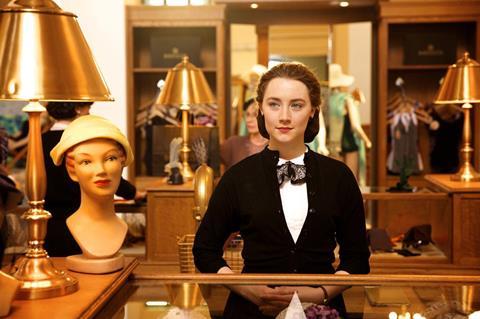Following a strong 2015 for Irish Film, the acting chair of the Irish Film Board has stated that funding must be restored to previous levels.

Annie Doona, acting chair of the Irish Film Board (IFB), has stated that funding levels must be restored to previous highs, following a successful year for Irish film.
Doona noted that the budget provided to the IFB by the Irish government has dropped 40% since 2008, meaning the current crop of successful Irish films will be hard to replicate in five years’ time.
Irish-produced titles such as Brooklyn, The Lobster and Room have garnered critical and commercial acclaim and look set to make an impact on the forthcoming major awards.
Brie Larson, star of Lenny Abrahamson’s Room, recently won the Golden Globe for best actress for her performance in the film, which also picked up the audience award at the Toronto Film Festival in September.
She is currently considered a favourite for the same prize at the Academy Awards and has been nominated for a BAFTA, as has screenwriter Emma Donoghue.
Brooklyn star Saorise Ronan is also considered a candidate for the best actress Oscar, having already taken the same prize at the British Independent Film Awards before receiving a BAFTA nomination.
Further titles include Yorgos Lanthimos’ The Lobster, which premiered at Cannes in 2015 where it received the jury prize, and Irish-Cuba co-production Viva, which has been shortlisted for the best foreign language film Oscar.
Speaking at a press conference in Dublin, Doona said: “Irish films are making a significant contribution on the global stage, we’re incredibly proud of that and we’re ambitious to build on that success.
“The investment made by the Irish Film Board is very important not only in terms of talent but in terms of reaping rewards for the Irish economy through job creation and enhancing our reputation abroad.”
Reaffirming her point, Doona highlighted that there are currently 6,000 jobs in Ireland’s audiovisual sector and that the location shooting of Star Wars: The Force Awakens on the island of Skellig, for example, has increased the potential for tourism.
She also added that in 2015, Irish films are estimated to have taken $52m at the international box office, and some $216m was spent on production in the country’s film, television and animation sectors.
However, Doona raised concerns that the longevity of these positives could be hindered by a lack of support from the Irish government: “But the Irish Film Board has a problem. In five years’ time we won’t have the same level of success unless our funding is restored to previous levels.”
Since 2008, the IFB’s funding has decreased from $21.8m to $12.2m in 2016, though this new figure includes a $550,000 increase on the 2015 budget, which Doona said was a step in the right direction.
“Funding is down 40% from 2008 and needs to be restored in order for the sector to fully realise its economic and cultural potential,” Doona said, highlighting that the current crop of successful Irish films had all been at least four or five years in the making, and that now was the moment to capitalise on those successes.
“Just think what we could do if we had the levels of funding we had in 2008. We really need the funding support now to enable more films to be made, with more we can do more,” she added.
Also speaking at the conference, six time Oscar-nominee Jim Sheridan defended the Irish government, pointing to the increased level of tax relief for film productions that was introduced in January last year: “I feel that the government have been good in really bad circumstances [the recession], the tax break is really good.”
Ed Guiney of Element Pictures, the Irish production company behind the likes of The Lobster and Room used the opportunity to highlight the importance of the development funding provided by the IFB, which he said was essential in supporting the current crop of Irish film talent.
“Looking forward, the film board really needs to think about how it brings talent through, it’s the scarce commodity in our world. The clever way to spend money is to develop projects that are given the time and space to be developed here and are then brought into the international marketplace” Guiney said.
Looking to 2016, IFB chief executive James Hickey said that “audiences will get to experience a wide range of [Irish] productions in 2016”, pointing to the record seven films that the country has seen picked for the Sundance Film Festival this year.
He then presented a slate of high profile Irish titles coming in 2016: The Secret Scripture, Jim Sheridan’s latest starring Rooney Mara, which is embroiled in the bankruptcy of Relativity Media but should see a release this year, and Pilgrimage, Brendan Muldowney’s Ireland-set historical drama starring Tom Holland and Richard Armitage.
Hickey also presented some of the high profile forthcoming co-productions, including Gerard Barrett’s Brain On Fire, starring Chloe Grace Moretz, and Whit Stillman’s Jane Austen adaptation Love & Friendship, with Kate Beckinsale, Chloe Sevigny and Stephen Fry.

























No comments yet